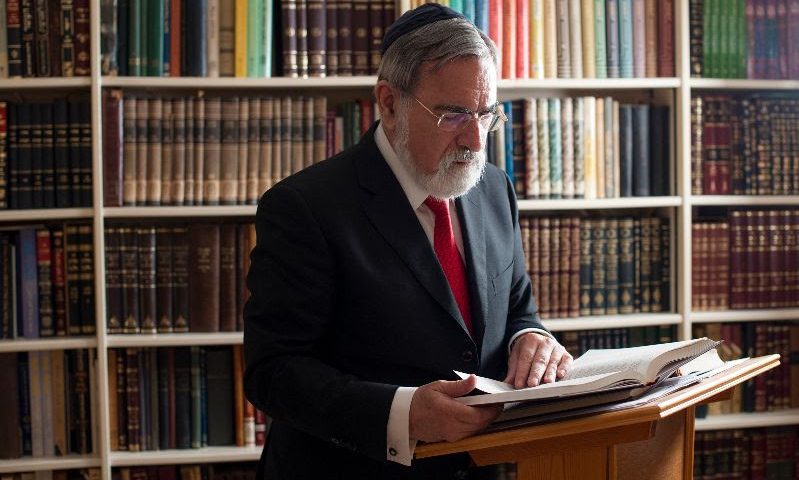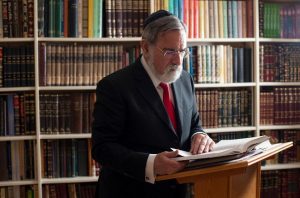PODCAST: The Philosophical Legacy of Jonathan Sacks

TRADITION joins with the Jewish world, and with lovers of wisdom everywhere, in mourning the untimely loss of Rabbi Lord Jonathan Sacks, who passed away on Shabbat. Rabbi Sacks served as the Chief Rabbi of United Hebrew Congregations of the British Commonwealth from 1991 to 2013, and was made a Life Peer in House of Lords in 2009. For many worldwide, his influence was felt through his dozens of books, countless essays, as well as his translations and commentaries on the Hebrew Bible and prayer-books, alongside his public speaking and presence on the world stage. Rabbi Sacks spent a distinguished life and career as a profoundly eloquent teacher and spokesman for Torah values within the Jewish community and throughout the world.
 R. Sacks served as a member of TRADITION’s editorial board, and, in fact, his very first scholarly essay, titled “Alienation and Faith,” was published in our pages in 1973. Written as a 25 year-old, it was a response – and respectful critique – of Rabbi Soloveitchik’s “The Lonely Man of Faith,” which we had published only eight years earlier. Re-reading the essay now we can identify themes and concerns which would occupy him as his mind matured and his eloquence flourished over the next half-century.
R. Sacks served as a member of TRADITION’s editorial board, and, in fact, his very first scholarly essay, titled “Alienation and Faith,” was published in our pages in 1973. Written as a 25 year-old, it was a response – and respectful critique – of Rabbi Soloveitchik’s “The Lonely Man of Faith,” which we had published only eight years earlier. Re-reading the essay now we can identify themes and concerns which would occupy him as his mind matured and his eloquence flourished over the next half-century.
To help us absorb the shock of his loss, and begin to assess R. Sacks’ legacy, TRADITION’s editor, Jeffrey Saks, spoke with Daniel Rynhold, professor of Jewish philosophy and Dean at the Bernard Revel Graduate School of Jewish Studies at Yeshiva University. Together, they surveyed R. Sacks’ interests and achievements as a thinker in his native Britain and worldwide. Rynhold outlines how R. Sacks functioned as both a particularistic Jewish writer and a universalistic member of the western philosophical tradition; they discuss his role and impact as a public intellectual; and consider how his legacy will impact generations to come. Rynhold, a London native, enjoyed a personal relationship with R. Sacks, and shares memories of the great man’s impact on himself – personally, professionally, and spiritually.
SUBSCRIBE TO THE TRADITION PODCAST
Available on iTunes / Spotify / SoundCloud / Stitcher / Google Podcasts
[Published on November 9, 2020]


2 Comments
This podcast by Prof Rynhold is excellent. Regarding the closing q about the Anglo-Jewish community: I think the answer is that he was not a product of Anglo-Jewry. His great influences were Cambridge philosophy (esp Bernard Williams); the Lubavitcher Rebbe; and R’Nachum Rabinovich, who although he was in the UK for almost a decade, never succeeded in becoming part of Angl-Jewry. Rabbi Sacks’ election as CR was masterminded by Stanley Kalms, himself an “outsider”, who started from the position that the Anglo-Jewish establishment, esp the United Synagogue, needed to be swept away. The US itself, at the time, was deeply ambivalent about Rabbi Sacks, because it was totally anti-intellectual! So rabbi Sacks’career was perhaps despite Angl-Jewry, not because of it. (This is a short comment on a complex issue!). My memories of Rabbi Sacks: http://haemtza.blogspot.com/2020/11/on-passing-of-chief-rabbi-sacks-zecher.html
Paul Shaviv – thanks for your (very perceptive) comment. You make an excellent point with which I agree. And as you say, far more to be said on the issue of his complex relationship with Anglo-Jewry during his chief rabbinate. Having thought about the question since this recording – and this after having spent my first 35 years in the UK and the last 13 in the US – I think there is also something to the point I make in the podcast, though it is a general point about the differences between the 2 communities that applies far beyond Rabbi Sacks. His own trajectory indeed likely owes more to the points you have made.